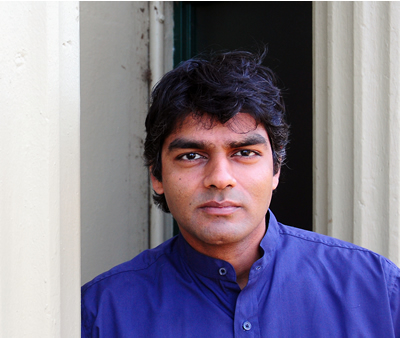Crisis is Paid by the Most Vulnerable – Interview with the ATTAC activist
Interview with Lisa Mittendrein, member of the board of ATTAC Austria
By Pavle Antonović and Vladimir Bogićević
In the article ”Disarming the markets” published in the Le Mond Diplomatique, its editor-in-chief Ignatzio Ramonet proposed founding of the organization that would pursue adopting of Financial Transactions Tax (Tobin tax). The organization was named ATTAC (Association for the Taxation of financial Transactions for the Aid of Citizens) and in the following years its branches spread around the world and became part of global alter-globalization movement.
Lisa Mittendrein joined ATTAC in 2009, in the midst of the financial crisis as still a student of Sociology and Socio-Economics looking for a chance to become politically active. She joined the ATTAC summer university and the finance group, and two years ago became the member of the board of ATTAC Austria. Her main areas of work include different aspects of the euro crisis, the economic and social situation in the European periphery, questions of wealth and distribution and cooperation with social movements. We talked with her for Freedom Fight Info about the current focus of ATTAC’s work.
– Austrian chapter of ATTAC published a report on the issue of so-called ’’Greek bail-out’’ claiming that 77% of the bail-out money given by IMF and EU was directly or indirectly given to the financial sector… Tell us more about this report.
We chose to work on the bailout of Greece and Ireland, because we hoped to change the way they were being discussed. While it was pretended that the bailouts were an act of solidarity with countries in need, they were actually used as a pretext to dismantle their systems of welfare, social and labour rights while the money went into the rescue of the financial sector.
For Greece, we published a research report showing in great detail, how a minimum of 77% of the bailout money went back into the financial sector. We did a similar project on Ireland, where we calculated during the time Ireland received 67.5 bn. in European loans, it spent 89.5 bn. on banks and investors. (For more details, including demands see www.ATTAC.at/bailout and www.ATTAC.at/bailout-ireland)
Both reports were taken up by mass and alternative media throughout Europe and helped advance public debate on whose interests the crisis policies really serve. Especially the results on Greece were spread widely and during election campaigns, Austrian politicians were confronted with them. We hope that our research also provided some additional material for movements all over Europe.
– After many years of ATTAC’s insisting on taxation of financial transactions, so called Tobin tax, what can you tell us about the outcomes of this initiative.
Regarding the Financial Transactions Tax (FTT) have seen great political progress over the years. When we started to demand the tax 15 years ago we were called utopians or naive. Today, 11 European governments have adopted a resolution to implement the tax in 2015 (or later). Currently the financial lobbies are trying to water down the– quite satisfying – legislative proposal of the European Commission. Together with civil-society organisations all over Europe we now have to keep pressure on the governments to implement a strong FTT.
– Except Financial Transactions Tax, what other causes were pursued or supported by ATTAC?
While the FTT was the founding demand, our topics are now much broader. ATTAC campaigns for a more just, social and ecologically sustainable economic system on many levels. This includes:
– Democratic control of financial markets
– A social and democratic Europe
– A fair tax/taxation system, including the closure of Tax Havens
– Fair trade instead of free trade
– Social security – No Privatisation of Public Services
– Climate Justice
– What is in the focus of ATTAC’s work at this moment?
Beside our work on the FTT our main focus currently is the fight against the crisis regime and the brutal austerity policies. European governments and the European Commission as part of the Troika made ordinary citizens and the most vulnerable populations pay for a crisis we did not cause. European elites use the economic crisis as a pretext to implement neoliberal policies and deepen the current mode of economic integration and exploitation in Europe. We campaign for alternative solutions to the current crisis and for a social and democratic Europe.
Our second focus at the moment is our campaign against the planned Transatlantic Trade and Investment Partnership (TTIP) between the EU and the USA. This so-called “free trade deal” is not only about reducing tariffs on goods, but threatens to reduce protection of workers, consumers and the environment by ‘harmonising standards’ (downwards). Furthermore, the planned investor-state dispute mechanism would give corporations to possibility to sue states for changing policies against their interests, e.g. by increasing minimum wages or strengthening environmental protection.
For the last couple of years ATTAC has also been working intensely on food sovereignty, where we closely cooperate with international movements and are part of the Nyeleni process.
– Tell us more about structure of the organization itself and the way of decision-making on national and international level.
On an international level ATTAC works as a network of independent and autonomous national Chapters. So there´s nothing like an international ATTAC Headquarter. Of course we are constantly in contact and share our strategies and expertises and coordinate our international campaigns on an international level. (see also: www.ATTAC.org )
ATTAC Austria has about 6.000 members and a couple of hundred activists. They organize in almost 30 activist groups all over the country and a coordinatig board of 9 people, which is responsible for the political and strategic decisions. The board and groups are supported by a small office in Vienna.
– What do you think about initiatives like ‘’basic income’’ and about recent results of referendum in Switzerland that rejected CEO pay limit?
We favour these demands under certain conditions, but also because it helps to broaden our thinking about how we should organize and value work in our society.
FreedomFight.net
Additional information:
ATTAC demands:
• Stabilisation of financial markets: 98.5% of the revenue generated on financial markets results from deals made with speculative intentions. Often these are short term transactions which make the financial markets more prone to crises. Capital flows have to be slowed down and the financial system has to be stabilised. There are some concrete instruments to achieve that: the Tobin tax, capital account restrictions, cooperation of reserve banks.
• A fair tax system: Tax havens and the competition for international capital cause dramatic drops in tax returns. Austria fuels this development even further by tax dumping. Assets, profits and capital incomes have to return to making a fair contribution to the funding of public services. Tax havens must be shut down and corporate taxation needs to be standardised.
• For now crucial decisions regarding the global economy are taken behind closed doors. The three international institutions of the global economy – World Trade Organisation (WTO), World Bank and International Monetary Fund – have to be democratised and integrated into UN organisations.
• Fair trade instead of free trade: The World Trade Organisation pushes for the liberalisation of trade, no matter what the consequences for the people are. The degree of each country’s openness has to be based upon sustainable development, social security, gender equality and cultural diversity.
• Regulations for enterprises: Under the pretext of legal protection of ‘intellectual property’ international enterprises aim at monopolisation and play off states against against each other in the competition for international capital. In their cross-border activities multinational enterprises have to comply with globally enforceable ecological, social, fiscal and working standards.
• Terminating competition for international capital: For the moment EU policies are heading in the wrong direction. Militarisation is enforced, social and ecological interests are subordinate to neoliberal economic policies. It is necessary to put an end to the global competition for international capital by means of high and harmonised ecological and social standards. In this the EU should have a ground-breaking role.
• Stop privatisation of public service providers: The consequences of privatisation of social security and public infrastructure are a rise in water prices by 50% and the collapse of the railway system in the UK; unaffordable costs for “at-risk groups” such as the elderly and the sick as a result of private health insurance. Public services such as health, education, water supply etc. must not be profit driven. We call for democratisation instead of privatisation of public services providers.
• Pension security: Pensions are not primarily expenses but people’s incomes. Yet the EU, OECD and World Bank push for a transition of pension funding to the more and more unstable financial markets – accepting unpredictable risks. Public pension systems must not be privatised. Only the intergenerational contract can ensure fair and safe pensions.
• Debt relief: As of 1984 more money flows from the countries of the South into the ones of the North than vice versa. E.g. many countries spend more on paying interest than on public education, health or nutrition. Poor countries must be freed of debts and have to be protected from new over-indebtedness by international insolvency law and by integrating the population in the lending process.















